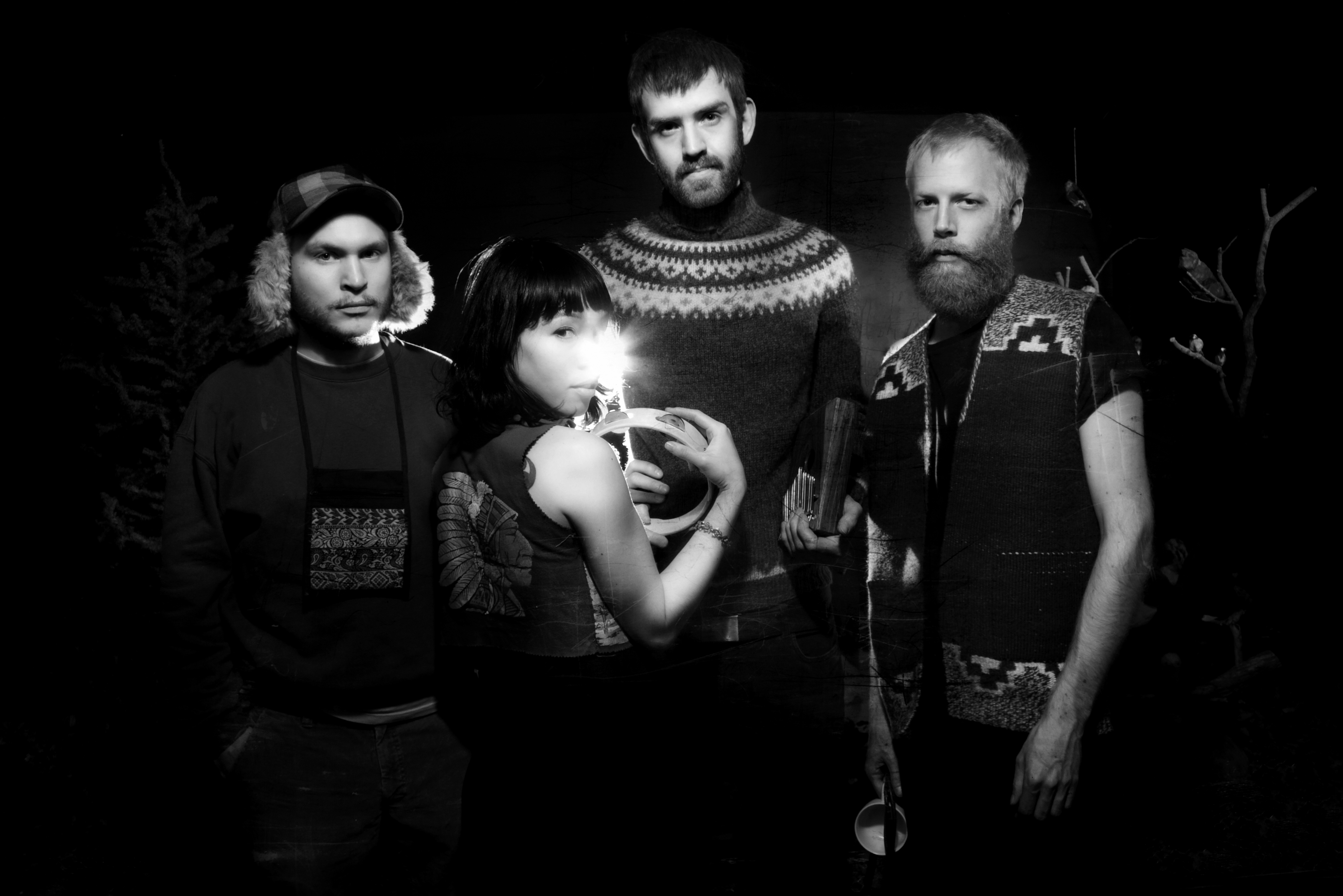They say there’s a sucker born every minute and looking at today’s music world you could say the same thing about musicians.
They say there’s a sucker born every minute and looking at today’s music world you could say the same thing about musicians. It seems there is a new buzz band every time you pop into a record store (although it’s may be more likely to be an online one, if not a blog or torrent site). The sheer weight of competition has flooded the market and where once record labels could make pop stars on a whim, now everyone is fighting to push their heads above the surface of this ever widening sea of bands and songwriters.
With such uncertainty in the market, labels are increasingly desperate to find some sound that will capture the imagination of the listening public, often trying to sculpt or shape artists into some preconceived mould for success. Swedish pop outfit Little Dragon are a band who have experienced such sculpting first hand.
Meeting in high school in the mid-’90s, Yukumi Nagano along with Erik Bodin (drums), Fredrick Källgren (bass), and Håkan Wirenstrand (keyboards) formed the band in the early days of the new millennium, their formative years being marked by a strong emphasis on organic progression and evolution. “When you’re making music forcing things or trying things that aren’t necessarily coming naturally to you is never good,” Yukumi explains. “It’s always important to us to feel like we’re being truly ourselves.”
Living together in a collective called The Seal Colonie, the band had soon built themselves a studio, recording a mountain of half-finished material. A friend of theirs, Christoffer Berg soon heard it and released a special limited edition single on his and Daniel Noord‘s label Off The Wall. It wasn’t long from here until they were singed to Peacefrog Recrods and had to deal with the vicissitudes of the music industry.
“The first album was pretty much a bunch of our demo songs, and to be honest we pretty much wanted to release a different album for our debut,” singer Yukumi recalls. “We had gotten into a bit of a difficult situation with our label and they had just decided those were the songs that they wanted to release. We were devastated at the time, ‘cause like I said, those were just our demo songs; we hadn’t even mixed them, but at that time, we’d already gotten our advance and spent all the money so we all just went along with it.”
Unhappy with their self-titled debut, the band were unsatisfied also with their lack of power in decision-making and embarked on an ambitious bout of touring. Visiting the US and Europe multiple times with no backing from their label and no press support, they nevertheless started building up a following through word of mouth. “You know, a few people coming to a show and then coming back to the same place and those few people bring their friends and there’s twice as many people in the club,” Yukumi enthuses.
With the buzz around them building they lucked out when Gorillaz mastermind Damon Albarn handpicked them as collaborators for his band’s third album Plastic Beach, the band finding a kindred creative spirit in the former Blur frontman. “We were complete strangers when we went into the studio, but coincidentally we have a very similar way of working. He’s very free and just kind of open and there’s not really any kind of formula. He just tries things out and if they work they work and if they don’t they don’t, and that’s just how we work.”
With the added attention and profile from working with Albarn also came added freedom with dealing with their label. Learning their lesson the first time round, when it came to their second album, Machine Dreams, the band were unafraid of making themselves heard and ensuring that it came out the way they wanted it.
“I think that’s all part of the learning process, Yukumi states humbly. “It takes time to build your confidence so that when people you’re working with tell you ‘no, this is better,’ and you really don’t agree, you’re able to be stubborn and put your foot down and say this is really really what we want.”
Coming through the sausage press of the industry, Yukumi and the band realise that the key to overcoming the many hurdles in the industry is hard work rather than trying to predict trends. “I think everyone is just speculating and the record companies are just coming from a pure business perspective,” she points out with sober clarity.
“But in the end it needs a lot of work. You need to invest, and that’s where the strange balance is. You have to believe it will be successful but you can’t be complacent and think it will just blow up overnight, you have to put a lot of work into it. People have been spoilt because that’s how it was before. People were selling so many records and were in such a powerful position and then they just lost it.”
Currently taking their time working on new material while touring with Gorillaz in the hope of having another album out next year, Little Dragon are a rare example of a band who managed to cross the tumultuous straits of the music industry to finally rest in the calm waters of success. Some may say that without the boost afforded to them by working with Albarn they would still be floundering in the shallows, but the fact remains that it was only by their hard work that he ever took notice, and only because of their persistence and talent that they stuck around long enough to be noticed.
LITTLE DRAGON play The Toff In Town on Friday December 10, and support Gorillaz and De La Soul at Rod Laver Arena the next night, Saturday December 11. Mac

